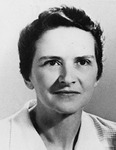After breakfast this morning Ada, the children and I went down to the store and bought twenty yards of black material. As there is to be the continuous blackout we decided that we may as well be as comfortable at night as possible. So windows were measured, lamp shades measured, and the amah (Priscilla) put to work at the electric sewing machine. Ada’s bedroom was to be our sitting room at night, as the radio is there. All curtains up, and everything even to the servants’ quarters well blacked out so that there is no need of fear and there is still ample light in each room for comfort. Everybody has his own flashlight, so we feel that we are very well fixed indeed.
No further news had come through during the morning hours, but many planes were heard in this vicinity — though none have passed directly over. We have tried to impress on the children’s minds to come in immediately at the faintest sound of a plane, but having lived so close to Nichols Field with numerous planes taking off and landing all through the day at such close quarters, it will be some time before they can be expected to catch the first faint sound. But without being warned, they have come in several times during the day when they were at play in this lovely big garden. At noon during the broadcast the commentator interrupted himself to say that planes — thirty of them in number — were approaching the city headed towards Nichols Field, and before any accounting could be given the station went off the air. Try as we did we could not get it back until about four-thirty. The thoughts that kept passing –Nichols Field, our house, Carl there at lunch, my friends in the same compound, our servants, and our little dog “Winkie” — what of them all? And when the news came through it was bad; Nichols Field had been badly hit and Cavite (our Navy yard) left ablaze — fires in our section of the city, emergency calls for eight doctors and all nurses not employed to report to the Red Cross. Paranaque, the residential section next to ours on the Nichols Field side, was also being evacuated by the Army. So we knew that it was terrific! As we waited for flash announcements and all news that came over the radio, rumors were already reaching us. A car horn sounded at the gate at seven-thirty, and the Ivorys had arrived. They fled at four o’clock before the all clear had sounded after a terrific dog fight right over their roof with shrapnel falling all around. They had packed as we had and brought with them all supplies they could pile in. They were badly worn and the strain told on them, not only the experience in Manila, but the last hour and fully a half they had travelled in total blackout. Mr. Ivory was marooned down town and could not get to them except by phone, so we set to work to give them comfort, made them wash the dust off, served them with hot soup and got them to bed. Their stories were very bad; for the first fifty kilometers they could still see the glow from the fire at Cavite. Many of the houses near them had gone up in flames. Mrs. Ivory had told her servants (chauffeur and the amah she brought to stay with her) not to mention the fact that there was a fire on Park Ave. (our street) but it was not long before my amah came an told me that our house had burned, and no one was sure that it had not. All this time and not one word from Carl — it is impossible to get a call through as the Army has priority on the lines and are constantly using them. There is a small detachment of soldiers a few miles north of here and the intelligence corps are at work all over the Islands. So to bed we went but no sleep for me. I drew what comfort I could in the fact that the children were well and that we were safe with friends, and had supplies with us that should last for several months.
